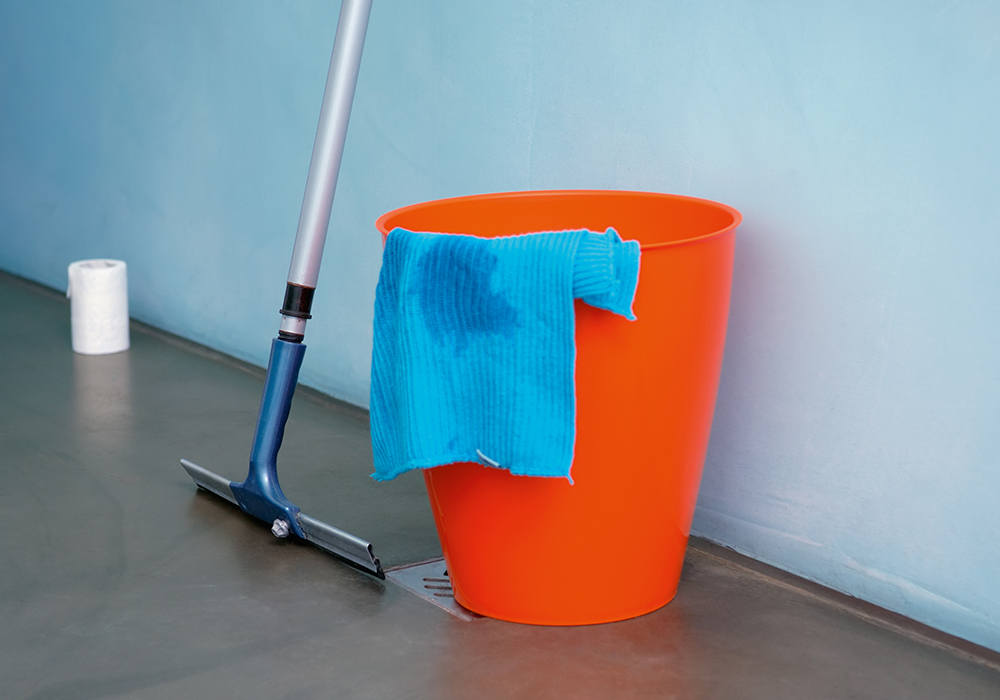Regular cleaning of the room is essential. Dirt and dust are removed from the room by vacuum cleaning or mopping. The more frequently a room is used, the more often it needs to be cleaned. Microorganisms can be transferred from one hand to the next, especially on frequently touched surfaces, handrails and door handles.
Cleaning
Vacuum cleaners can stir up very fine dust particles. For this reason, many modern vacuum cleaners are equipped with additional particle filters. These filters should be replaced or cleaned regularly, especially if sensitive people and allergy sufferers use the room.
When wet cleaning, it is important to make sure that the surface to be cleaned is compatible with the cleaning agent used. For most household applications, water and a little neutral soap are sufficient.
Cleanings agents
There is a wide range of cleaning agents that are used daily in residential and office buildings. These include, in particular, cleaning agents for cleaning floors, furniture, sanitary facilities and kitchens. The use of products with an antibacterial effect is increasing in private households. Cleaning agents can affect indoor air quality as they sometimes contain solvents and fragrances that evaporate during use and are released into the air.
Most products contain inorganic compounds such as phosphoric acid esters, peroxides and surfactants. In addition, many cleaning agents also emit organic compounds. Studies have detected chlorinated compounds (methyl chloride, 1,1,1-trichloroethane), alcohols (2-propanol) and acetone, among others. Substances that are released into the room air by a cleaning product are rarely listed on the label. This also includes fragrances used, which are often terpenes. After using cleaning agents and detergents with an intense fragrance, for example, the concentration of terpenes in the room air may increase (usually for a short time). It is therefore advisable to ventilate the room well, especially after wet cleaning and after using special cleaning agents (e.g. carpet or upholstery cleaners, plastic cleaning agents). This removes water, additives and fragrances from the room.
According to data from the German Environment Agency (Umweltbundesamtes, UBA), around 220,000 tons of household cleaning products are sold in Germany every year, with an additional 260,000 tons of dishwashing detergent. The cleaning agents not only release various volatile substances into the air, but can also trigger skin allergies under certain circumstances. They also end up in water bodies. The use of cleaning agents should therefore be reduced and, if possible, only those that are free from solvents, inorganic acids and chlorine-containing compounds should be used.

